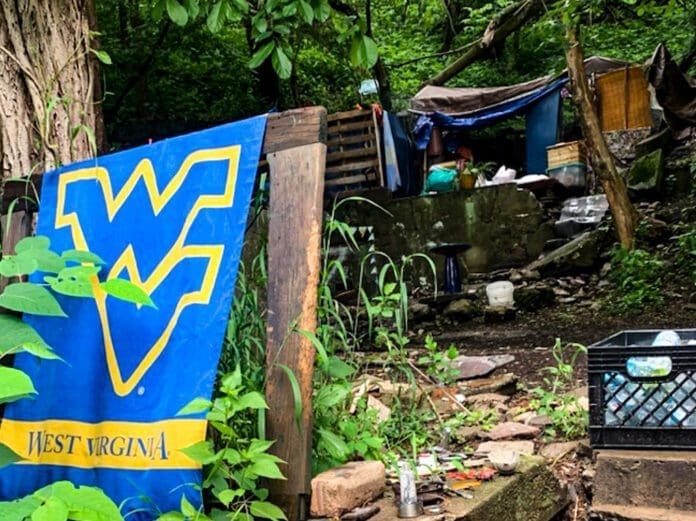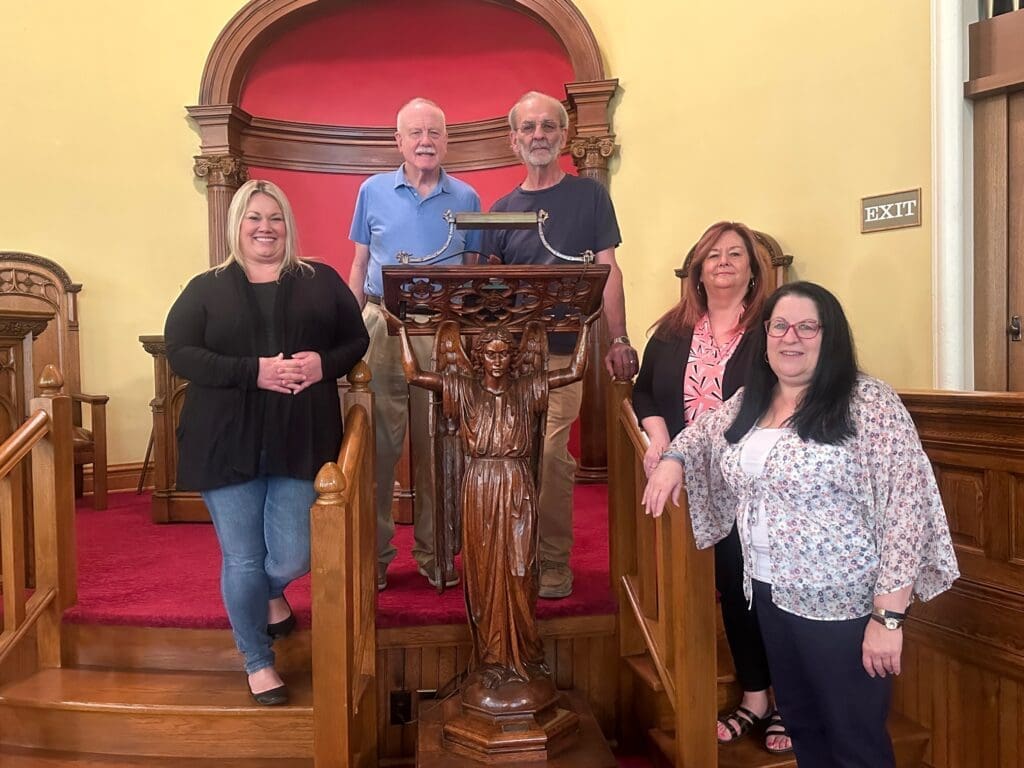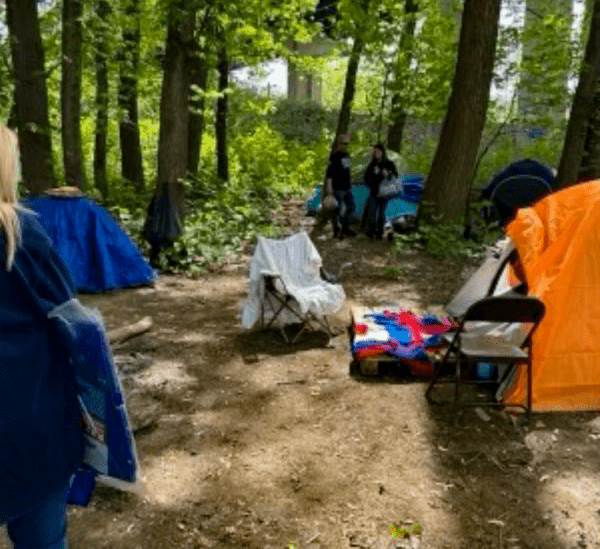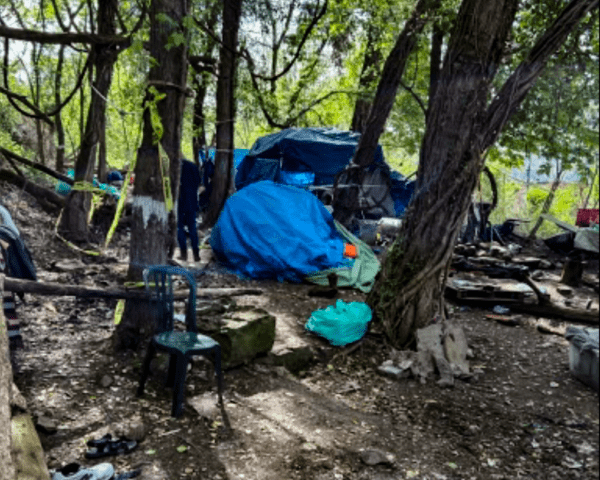
Melissa Adams was a young mother not too long ago, and she pushed her children in strollers along peaceful public paths in communities in both California and Ohio.
And not a single person, homeless or otherwise, approached her during those walks.
“If someone would have come out of the woods along one of our trails, I don’t know what I would have done,” she said. “But I know that’s happened here in Wheeling, and I know people refuse to use our trails because of it. It’s not going to happen anymore, though. It can’t.”
Adams, who orchestrated the winter freeze shelter in partnership with Catholic Charities, was hired a little more than a year ago as the homeless liaison for the City of Wheeling, and since she’s worked with several local non-profit agencies who, in part, offer services for those living homeless. It’s a puzzle she believes she’s piecing together, and Adams is convinced a Wheeling Life Hub is the place where all needs can be collected so successful transitions from homelessness back to productivity can take place far more often than what is realized now.

The Life Hub, a 501c3 nonprofit, was formed as a partnership with the City of Wheeling and the Wheeling Housing Authority to serve the homeless and open a low-barrier shelter. Not only would the facility offer social services like sheltering, medical respite, and counseling, but Adams also would work with a plethora of local non-profits so necessary connections can be made as well.
“The main goal is for the Wheeling Life Hub is to work with all agencies so the services can come together so we can help people who are homeless to get shelter and to get employment by figuring out the help they need,” Adams said. “Mental health plays a huge factor, and so does addiction. Those are problems that must be addressed the best ways possible before we can do much of anything else.
“There would be case managers so those issues could be addressed first and foremost by getting these people connected,” she said. “If we are successful with getting a Life Hub shelter where these folks can find shelter, health care, and people who will hold them accountable when it comes to the appointments it takes to resolve issues, then we’ll be more successful with transitioning people back into productive lives.”

Communication Breakdown
Homeless encampments have been cleared and labeled “crime camps” after stolen items were discovered hidden away in tents lining Big Wheeling Creek.
Corpses have been carried out of the camps following overdoses, extreme outdoor conditions, and suicides, and medical volunteers with Project Hope have treated every imaginable ailment, including frost bite, organ failure, and deadly disease.
And panhandlers continue to line crowded roadways and interstate exit ramps in hopes of a “blessing” or two.
“And in the past, the litter that has been left behind has caused a lot of complaints, and the evidence of drug use has been very concerning,” Adams said. “We’re not seeing as much drug use as we have in the past, but drugs are everywhere, and we all know it.
“Plus, I’ve developed a plan that addresses things like camp locations and the litter that we’ve all seen, and that includes a five-day notice to the residents of camps where I see a lot of garbage laying around,” she explained. “If that doesn’t happen, then they are told to go. We can’t have the litter anymore. Not only do we get complaints, but it’s bad for the environment, too.

Public safety, too, has been addressed.
“We’ve made a rule that no camps can be located along the Heritage Trails anymore, and not under the bridges or along waterways either, and those are rules that we’ve been enforcing, too,” Adams said. “And our homeless have responded in a positive way, too. Most of the camps actually look like real campgrounds you see inside state parks because we’ve partnered with the (state) Department of the Environment.
“We don’t have the incredibly large camps right now because some of those situations got scary. I know there were encampments that were labeled ‘crime camps’ because some of the residents were not following normal laws,” she admitted. “Listen, this is my town, too, and I love my town, and the last thing I want to happen in my town is for someone to get hurt.
“I want the city of Wheeling to thrive, and I want what is best for the people of my city. So, we can’t have these camps that are affecting our bridges, our waters, and the safety of our residents. I have established a great relationship with our police department, too,” she explained. “We have reached the point where everyone knows where these camps are so we can police them, and so our local agencies can do what they can to help as much as possible.”

